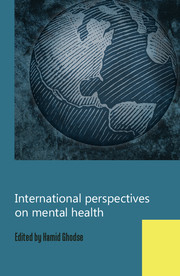Book contents
- Frontmatter
- Contents
- List of contributors
- Preface
- Africa
- Asia
- Australasia
- Europe
- Albania
- Austria
- Republic of Belarus
- Belgium
- Bosnia and Herzegovina
- Croatia
- Czech Republic
- Estonia
- Finland
- France
- Germany
- Greece
- Hungary
- Ireland
- Italy
- Lithuania
- Malta
- The Netherlands
- Norway
- Poland
- Portugal
- Romania
- Russian Federation
- Serbia
- Slovak Republic
- Slovenia
- Spain
- Sweden
- Switzerland
- Ukraine
- United Kingdom
- North America
- South America
- Index
Czech Republic
from Europe
Published online by Cambridge University Press: 02 January 2018
- Frontmatter
- Contents
- List of contributors
- Preface
- Africa
- Asia
- Australasia
- Europe
- Albania
- Austria
- Republic of Belarus
- Belgium
- Bosnia and Herzegovina
- Croatia
- Czech Republic
- Estonia
- Finland
- France
- Germany
- Greece
- Hungary
- Ireland
- Italy
- Lithuania
- Malta
- The Netherlands
- Norway
- Poland
- Portugal
- Romania
- Russian Federation
- Serbia
- Slovak Republic
- Slovenia
- Spain
- Sweden
- Switzerland
- Ukraine
- United Kingdom
- North America
- South America
- Index
Summary
The profound political, social and economic changes that occurred after the end of communist rule in Central Europe in 1989 had a profound influence on Czech psychiatry. In the socialist Czechoslovakia the healthcare system was fully owned, financed and organised by the state, in so-called regional institutes of healthcare. These had obligatory catchment areas of about 100 000 inhabitants and comprised in-patient as well as out-patient care facilities, including psychiatry. The main trends after 1989 were decentralisation of the healthcare system, rapid privatisation, especially of out-patient services, and financing through the newly established health insurance corporations.
Medical education
In the Czech Republic the system of education is similar to systems in other European states: there are 9 years of primary and 3 years of secondary education; doctors do 6 years of study in medical school. Psychiatry is usually taught during the 4th, 5th or 6th year, mainly in a 3- to 4-week course, totalling about 60–100 hours. Classes typically have about 10 students. There are also obligatory courses in medical psychology and ethics and electives in psychotherapy and in communication skills.
Postgraduate training of physicians was until recently centralised and organised by the Institute of Postgraduate Studies of Physicians, an organ of the Ministry of Health. A law regulating the postgraduate training of healthcare workers, passed by the Czech Parliament at the beginning of 2004, has substantially changed these procedures. Medical schools as well as other accredited institutions are allowed to participate in postgraduate training. Training in psychotherapy became a common part of physicians’ education.
Specialisation in general adult psychiatry includes 5.5 years of practising psychiatry at accredited departments, with rotation in various types of ward and out-patient facilities. Internships in internal medicine and neurology lasting 3 months each are obligatory. There are also special separate courses and specialisations in child psychiatry, old age psychiatry, drug addiction and sexology.
Service provision
We estimate that less than 3.9% of the healthcare budget has been allocated to mental healthcare, which is one of the lowest rates in the European Economic Area (Commission of the European Communities, 2005). In recent years the number of physicians working in psychiatry (Health Statistics, 2004) has been increasing and in the year 2002 there were 1210 (11.8/10 000 population), most (49.8%) working in out-patient clinics.
- Type
- Chapter
- Information
- International Perspectives on Mental Health , pp. 294 - 298Publisher: Royal College of PsychiatristsPrint publication year: 2011

